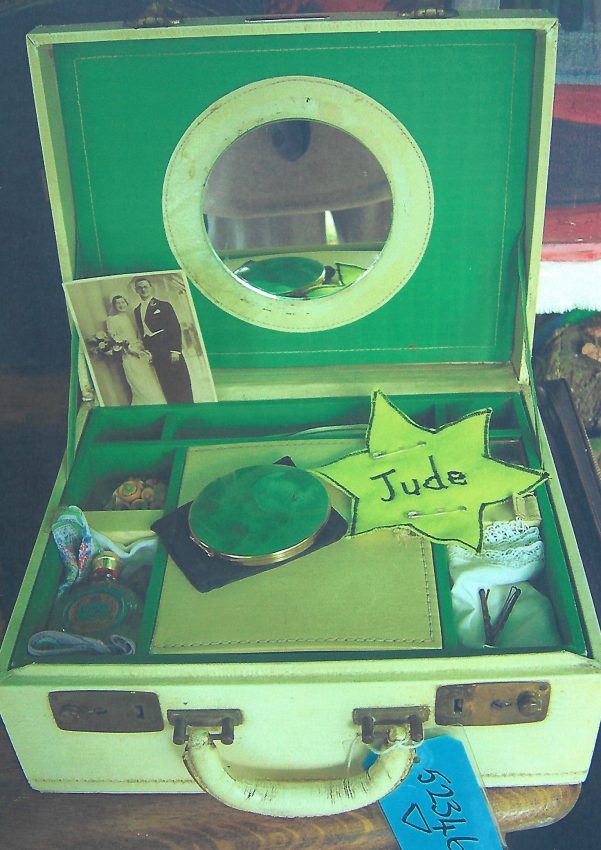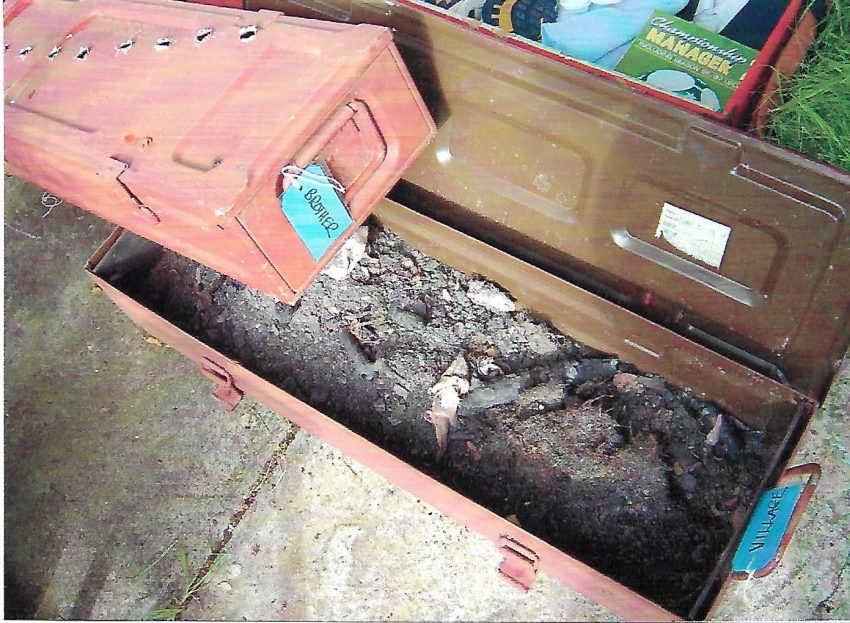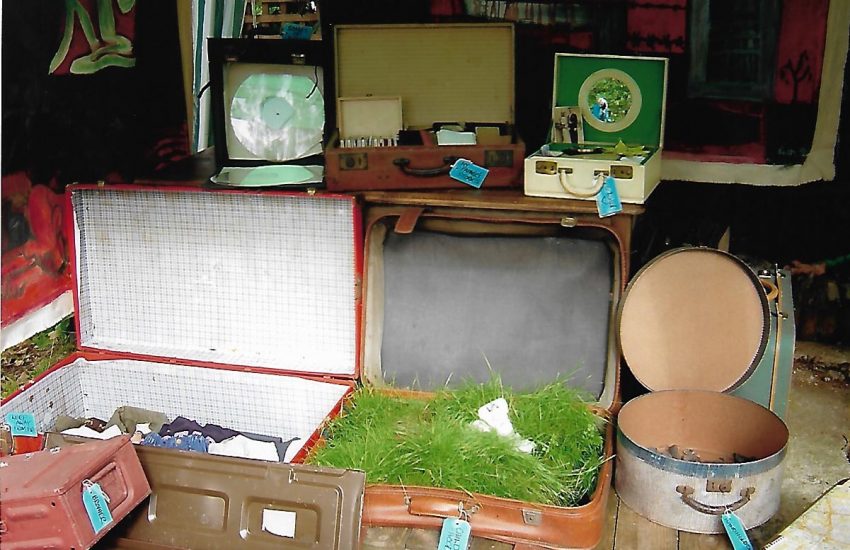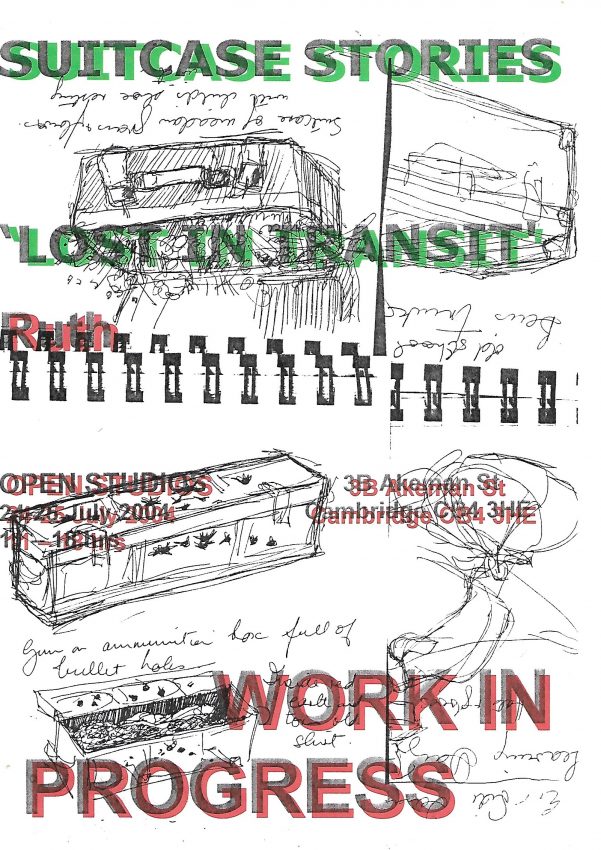Burying a living soul and the death I was responsible for

When Mike walked back into my flat that day back in 1968, he was dead. His face was rigid. His eyes stared blindly. “My father buried me.” Mike spoke as if every word was a stone placed on his own grave. “Dad held a funeral service in the synagogue and said Kaddish for me.”
I was the reason that my then-boyfriend, later to be my ex-husband, Mike, was dead. I was not Jewish. Mike could not marry me and we ought not to live together. I knew that from school, university, and political friends as well as from Mike and his closest friends. Mike had helped me find a flat to rent and, despite this religious prohibition, he had moved in with me and my child, only occasionally going home to his parents for Shabbat. Mike’s friends and cousins were part of their close-knit community as well as ours, so it was inevitable that his parents would find out that we lived together. When they heard about it, Mike’s parents ordered me to visit them. They screamed at me for a while, then told me to go, but Mike and I continued to live together. It was a few months later when Mike’s father symbolically buried his son. It was an extreme act in any faith, in any family. Years later, Mike’s Uncle Sid told me that he had feared his son would also “marry out” but he said, shaking his head, “I’d never have buried him.” Mike’s uncles disapproved of his father’s action but kept their fingers crossed till their own children married. I don’t think Mike’s mother took part, either. If Mike’s father had not rejected and buried him if instead, he had said he loved him I doubt that Mike would have married me. We wouldn’t have gone on to have children and grandchildren together and our lives would have taken different paths.
,
The useless revenge of cancel culture

Today’s world operates on cancel culture and is controlled by algorithms. Algorithms feed us only what we ‘LIKE‘ so that we become addicts to positive clicks. If another person disagrees with you or upsets you, you ‘BLOCK‘ them. This is the commonest advice on Facebook. Pain and discomfort are not allowed physically, morally or spiritually. There is no requirement to engage, communicate or understand. No need to persuade, compromise, consider or adapt and change. What is it that is actually happening when these digital executions take place? What is being blocked? Is it an idea, a misconception, a mistake, something terrible, something mutable or is it a whole complex human being with a complicated life history?
Once, a cancellation was not permanent, it was simply a deferral. It wasn’t supposed to end the possible forever. It’s different now. ‘Cancelling’ has become a kind of ‘Warspeak’, or another way to say that it’s okay to silence or even kill a person in order to stop an idea having a life. I know from experience that there are people who’ve been cancelled by racism, sexism and colonialism. I understand their desire for revenge, but it’s counterproductive. Cancelling people who disagree with us makes us tyrants, too. We can legislate for human rights but we cannot legislate to make people do and say the right thing. Everyone gets it wrong sometime, somewhere and somehow. There is no freedom without allowing dissent, even in families. Have you noticed that it’s mostly older women, once progressive activists when they were young, who get cancelled? It isn’t so much teaching your granny to suck eggs as insisting that the person who once ate raw eggs from forest hens must now swallow boiled eggs from your factory fowls.
The erasure of people – personal and political

When Mike’s father buried him, Mike said nothing, but he was never able to speak of his emotions at the best of times. I don’t remember personally feeling angry or full of hate for his father. I understood that he had his reasons, however misguided some of them might be. I had lived in Rhodesia and South Africa where black people were in the process of being ‘erased’ by apartheid and racist regimes, so I had witnessed the pain that erasure inflicts. Mike was a Jew born in 1939 when the Nazis had begun to exterminate – to erase – all the Jews in Europe. That made it inevitable that his father would not want his son to “marry out”. I had seen my own father tear himself apart when my mother left him. He felt erased and went on to punish me and my sister for not taking his side against her. Both Mike and I were ‘prodigal’ children. My father was wrong to be cruel and so was Mike’s father. They both suffered, but they made us suffer too.
Burning libraries and books

There is an African saying that when an old person dies a library is lost. That’s what I felt when my mother died. It’s also part of the reason why I didn’t hate Mike’s father for his intentional spite or my father for his unintended cruelty. It is also a reason why I should not be erased or blocked either. If a person is a ‘library’ then the library doesn’t only contain quality books of approved content. It will be like my bookshelves – a jumbled pile – a miscellany containing trash and treasure, not all of which I chose myself. Burning that whole ‘library’ – ignoring that complex person – blocking them – is to impoverish yourself and others forever. Books and libraries were burned by the Nazis to destroy people. Invalidating people and relationships with individuals is as bad – it makes your own human library selective and therefore worthless by much more.
Pulling down statues and closing museums
Pulling down the statue of Colston in Bristol was a necessary piece of ‘agitprop’ to start a debate going about the history of British slavery and colonialism, but I’m glad it was fished out of the Bristol dock. We need the statues of the oppressors placed alongside those they oppressed and those they benefitted inside museums. History is not just a fixed timeline of wars, battles, warriors and rulers viewed through a single lens. It’s a facetted kaleidoscope of shifting perspectives seen from different angles under changing lights and open to individual interpretations. No one can ever conclude they have total and complete knowledge of what took place then or what is evolving even as I write. The Apartheid Museum in Johannesburg has closed for lack of funds. The failure to keep it going is a crime committed by the present South African government. Not caring about the past, not respecting old people cancels young people’s future. Imposing one point of view either by intention or neglect is tyrannical.
Illustrating human stories
I’ve chosen to illustrate this post with photos of my Suitcase Stories at my 2004 Open Studio in Cambridge. I created an installation of suitcases, boxes, and trunks each containing either a personal history or an idea – none of them fixed and complete allowing the viewer to decide for themselves, what they think and feel.
2 Comments on “Cancelling people, erasing history, burning libraries, & killing souls”
Marvellous to read you.
Fond memories of you, your children and Mike in Zambia. II’d very much like to get in touch with you sometime.
John Lagnado
Stories are the way to reach people and to understand ourselves. It is good to be in touch again and to remember those times together. Ruth